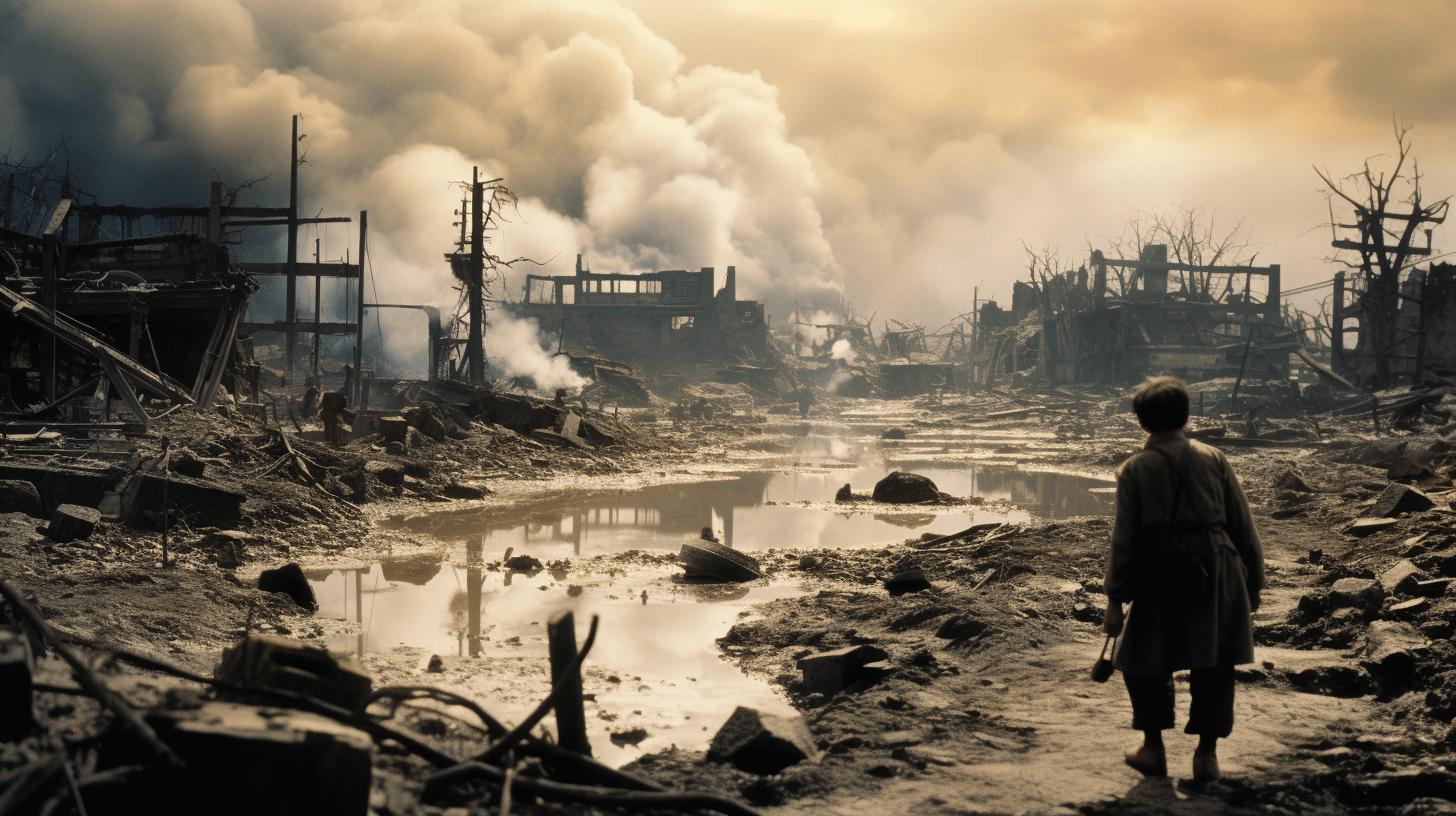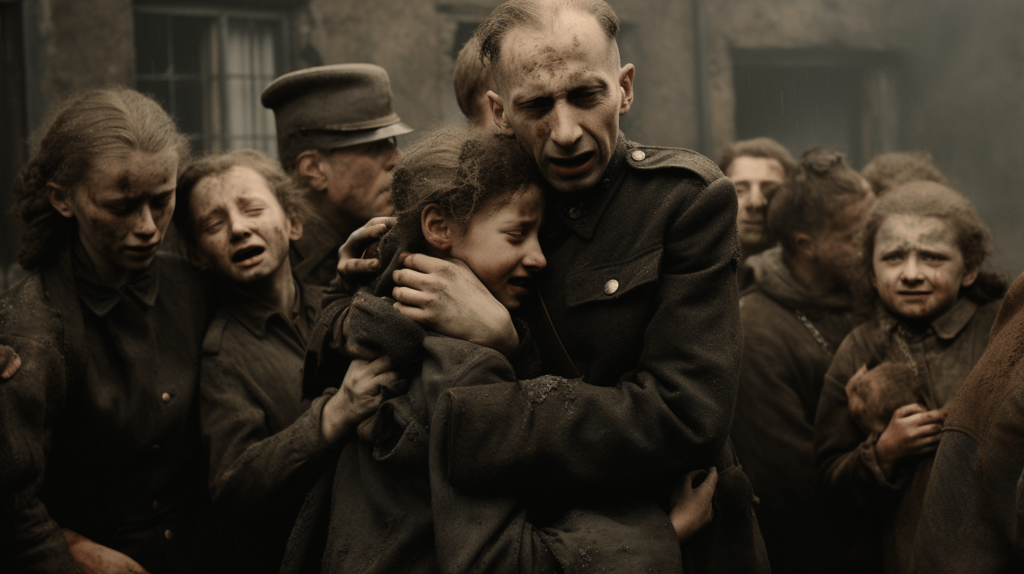Truth & Goodness
Poison on a Plate: What Drives Us to Eat Dangerously?
01 March 2026

Our society comprises a community of people with a shared sense of belonging arising from diverse economic and cultural factors, while people with a shared sense of history live within states. An adult individual is a person shaped by the way a society with its collective identity influences them, even if they declare no knowledge of their nation’s history or if it is of no significance to them. And sometimes who we are is shaped by collective trauma.
Japan – the Land of Cherry Blossoms, and currently one of the world’s most robust economies. A pioneer in cutting edge technology. A haven for inventors and eminent scientists. A country driven by enormously high work ethics and an example of lightning fast progress.
Poland – priding itself on its tenacity in striving for freedom, the home of John Paul II and Frederic Chopin. A country located in the very heart of Europe with a long history of conflicts. Currently one of the fastest growing economies in Europe.
The United States of America – a leader of the contemporary world, a promised land for millions of immigrants, a beacon of tolerance and a cultural melting pot, the home of mass culture and an indisputable military power.
These three countries share the same experience of traumatic events which profoundly scarred their people. How can collective trauma affect the shaping of societies?
Carl Gustav Jung is behind the existence of the collective unconscious. He looked for it in the traces of human activity which, even though not isolated from the influences and experiences of preceding generations, was rather a continued single and ever-evolving thought stretching throughout human existence. You can say that it is simply a definition of what the development of culture and civilization is. However, the forefather of depth psychology indicated a significant factor which allows us to differentiate between these notions. Namely, he claimed that human activity is partly motivated by conscious impulses and partly by the unconscious ones. And the mere reason for mankind to go one way or another may stem from inclinations and conditions deeply rooted in human minds and mixed in the collective societal pot.
Constructive behaviors, such as the development of arts and medicine or inventiveness, exist side by side with destructive impulses leading to, among other things, wars. If the collective unconscious has the ability to build and destroy, then can it also keep the memory of the collective trauma?
Trauma is a deeply distressing experience which is pervasive in nature and results from an abrupt and disturbing incident exceeding the adaptive capabilities of an individual. It causes many symptoms such as anxiety, grief, low mood, aggression towards oneself and others as well as lowered self-esteem.
The clinical definition is formulated in the context of an individual. However, there is also the common notion of so-called collective trauma. “Traumatic experiences are of a rooting nature for a community,” Polish philosopher and a political scientist, Professor Marek Cichocki said in an interview with Polish Radio. And it seems the memory of shared hardships may unite indeed. Tragic events painfully brand societies impacting the course of their future growth.
The day was just starting in Hiroshima. Not a single soul out of 370,000 citizens expected “the second Sun” to burst out in the sky. A split second later almost the entire city was ablaze (most of Hiroshima buildings were then wooden). 78,000people died instantly and further tens of thousands of victims were wounded or missing. Three days later the same fate befell Nagasaki.
That tragic event is the only known case of using nuclear weapons for combat purposes in the history of our world. The attack directly contributed to the definite end of World War II. But for Japan, it was merely the beginning of a new nightmare. The surviving victims are called “hibakusha” in Japanese (“the surviving victims of the atomic bombings”) and are living witnesses to this tragic history.
Social and political consequences of the atomic bombings could be felt almost instantaneously. Japan adopted a new constitution in which it denounced war entirely. Owing to the efforts of the new mayor of Hiroshima, Shinzō Hamai, the city was proclaimed a City of Peace in 1949. It is thanks to Hiroshima that mankind understood another global armed conflict might be their doomsday.
An absolute rejection of an armed resolution of conflicts took root in the minds of subsequent generations. The shame of defeat, which to date was the most prominent fear of a society fighting with the United States, was replaced by the fear of a doomsday device. Shortly thereafter and as a result of political changes, Japan joined the ranks of the United States’ allies and began the era of the nation’s reconstruction. The society, so incredibly disciplined earlier, took a common effort to rebuild their nation in the spirit of safety and prosperity. New generations remember the events of 1945 and the “hibakusha” myth is passed from one generation to another as the most important Japanese ethos.
The threat of a new war was looming over Europe almost since the end of the previous global armed conflict. Poland had been already readying itself for war for a few years, but Polish society still hoped that another devastating conflict would not happen.
At the break of dawn, the Nazi air force began bombing Poland without any prior declaration of war. On September 3 the conflict became global.
Poland was particularly affected by those military operations. The unfavorable geopolitical location and heroic Polish resistance led 13 million Poles to their deaths. Material losses were equally high.
The biggest Polish cities, including Warsaw, were burnt down to the ground. Polish industry and infrastructure were completely destroyed. That is why the surviving victims of the war could, for many years to come, bear witness to the nightmare which one human being can pass onto another one.
Following the fallout of World War II, Polish society developed numerous mechanisms in an attempt to cope with collective trauma. In communist Poland, and despite restricted liberties, Poles, usually internally divided, united socially first and foremost to rebuild the country, and secondly, to fight a new enemy in the form of the communist regime.
Difficult history led Poles to develop particular social characteristics, collectivism being one of them. It is a model based on strong bonds with the family and placing the common good before the personal one. It somewhat resembles tribal behaviors: “we have to stick together to survive” (however, it is only related to family members, whereas as a nation Poles are incredibly divided). The feeling of security, which was threatened for decades, led to the development of a “siege mentality”. It is a mechanism that is frequently abused rather cynically by politicians. People’s fear of other nations, social groups or sexual minorities evokes the feeling of threat, which in turn raises the social tension and activates defensive behaviors manifested often by more or less aggressive attitudes. Xenophobia, racism and homophobia are the extreme forms of such influence.
Experienced traumas can also be the reason for low levels of trust. In 2015 the Poland’s Central Statistical Office released data in its “Values and Social Trust in Poland” report. It shows that more than a half of adult Poles do not trust state institutions such as courts, the government and the parliament. This phenomenon often manifests itself in a very relaxed attitude towards legal norms which are considered to be mere guidelines rather than any rigid rules. Traditionally, the Catholic Church, which in the communist Poland was the only independent institution, now enjoys a high level of public trust and holds an enormous sway over the social and, unfortunately, political life in Poland.

No U.S. citizen in the 21st century, even in their darkest nightmares, could ever imagine that a military superpower would be attacked by any outside forces. Former U.S. President, George W. Bush, upon hearing the words “the US is under attack” tried to remain calm not to frighten the young students of a school he was visiting.
The events of that day stripped many Americans of their feeling of security built into them over many decades. The myth of the invincible United States was in ruins within just a few hours. Americans died on their own land.
Images of that event reverberated through the international media for a long time afterwards. The social consequences were enormous. Americans started to fear organized terrorism most of all. A military intervention in Afghanistan was launched and American support for the military attack on a foreign state was the highest since the Vietnam War. A society which prided itself on tolerance and openness became wary of Muslim immigrants. That fear caused the country whose symbol is the Statue of Liberty greeting newcomers, to temporarily close itself to the world.
After 2001 the U.S. entered an era of political and economic radicalization. The economy, so far continuously growing, suddenly became very prone to the maelstrom following the events of 9/11. Many myths on which the country was built were debunked. The time of continuous prosperity ended in fears of the foreign capital being pulled away from the U.S. The myth of the peacekeeper nation was suddenly a thing of the past. More and more daring actions of the U.S. army in the Middle East caused both the Americans and international society to doubt the purity of American intentions.
There is a component of an identity in each of us given to us by previous generations which complements our individual experiences and life stories. Sometimes we are able to choose whether or not to accept those transferred values as our own. However, escaping the past, even a difficult one which led to developing fears deeply rooted in the collective unconscious, is a hard thing to do. In order to understand ourselves, we have to understand the history of the community in which we live. We cannot live without our roots whether we want to or not.
Read more on Holistic News

Truth & Goodness
01 March 2026


Zmień tryb na ciemny